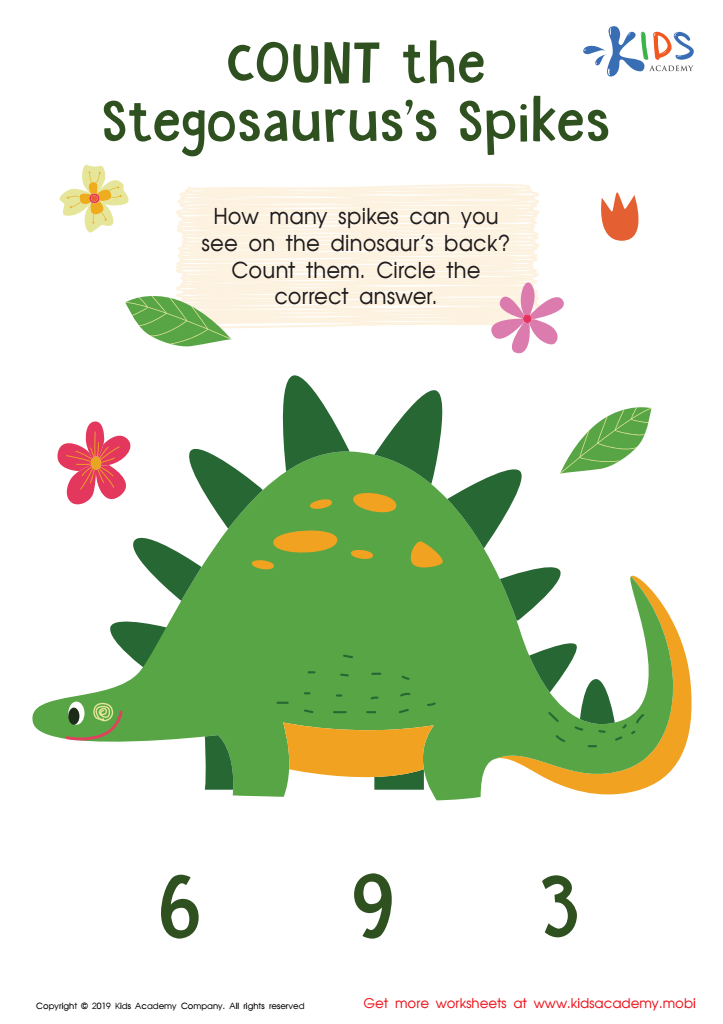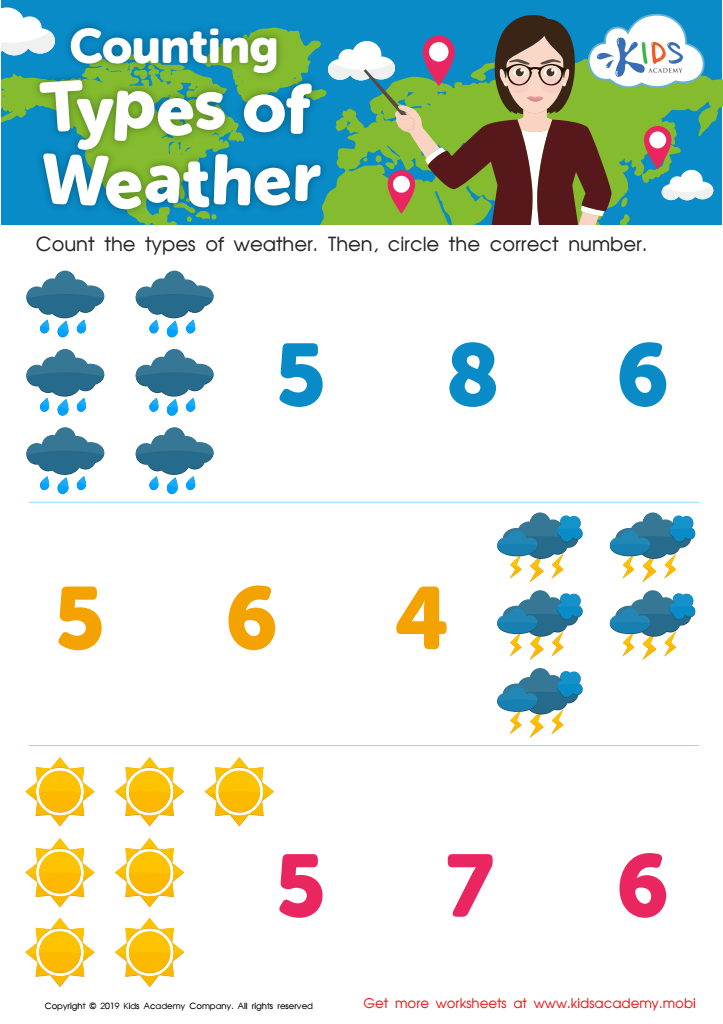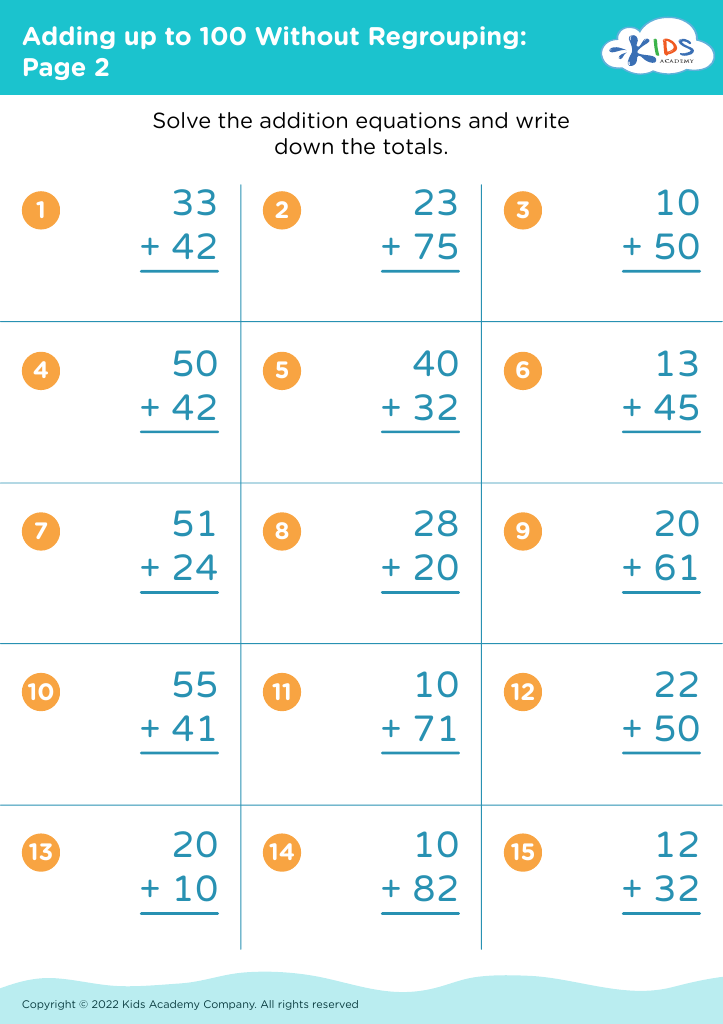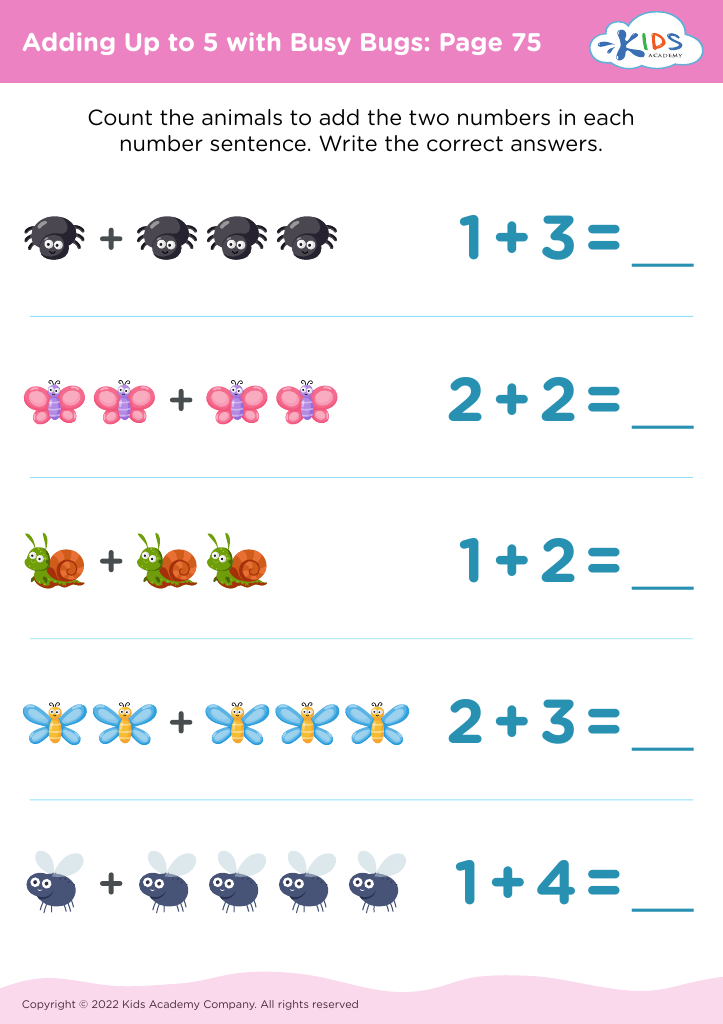Number counting Worksheets for Ages 5-8
4 filtered results
-
From - To
Enhance your child's number recognition and counting skills with our engaging Number Counting Worksheets designed for ages 5-8. Our carefully crafted worksheets provide a fun and interactive way for kids to learn and practice counting through vibrant illustrations and engaging activities. From simple one-to-one correspondence to more challenging counting exercises, these printable resources cater to various skill levels and learning styles. Perfect for home or classroom use, our number counting worksheets encourage children to develop their mathematical foundation while boosting confidence. Explore our extensive collection to help your child master counting in an enjoyable and effective way!


Count the Stegosaurus's Spikes Worksheet


Counting Types of Weather Worksheet
Counting is a foundational skill that significantly influences a child’s overall mathematical development, making it crucial for parents and teachers to prioritize this area between ages 5-8. At this developmental stage, children are naturally curious about numbers and begin to grasp early math concepts. Counting helps them understand quantity, establish number sense, and develop problem-solving skills.
Furthermore, counting lays the groundwork for higher-level mathematics, such as addition, subtraction, and even early algebraic concepts. By mastering counting, children gain confidence in their ability to manipulate numbers, paving the way for academic success.
Moreover, counting enhances cognitive development, encouraging children to think logically and critically. Through counting activities, children improve their fine motor skills, memory, and attention span. Engaging in counting games or everyday counting scenarios fosters a love of learning and makes math enjoyable.
Additionally, children who struggle with counting may find challenges in future math learning, leading to gaps in knowledge that can affect their self-esteem. By supporting counting skills, parents and teachers can create a positive educational environment that cultivates curiosity and resilience, ultimately setting children on a path toward a lifetime of math enthusiasm.



 Assign to My Students
Assign to My Students



















